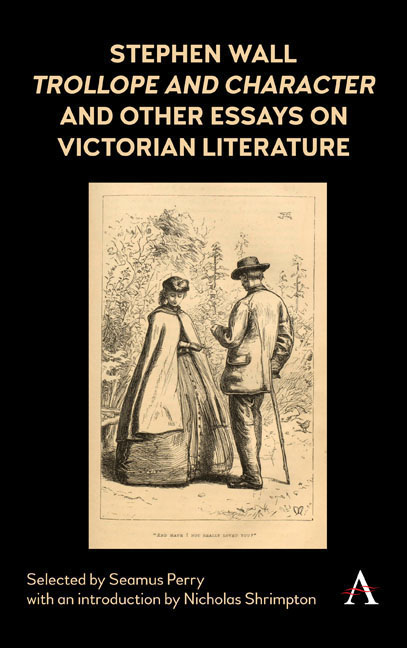1 - The Artist as Philistine [1984]
from Part 1 - On Trollope
Published online by Cambridge University Press: 25 July 2018
Summary
The first editor of Trollope's letters, Bradford A. Booth, thought that ‘no good purpose would be served by printing in full all the letters and notes that have been collected’ and, in his 1951 edition, he often resorted to précis. N. John Hall, whose excellent new collection will clearly supersede Booth's, adopts the now standard policy of printing verbatim absolutely everything that has survived, however trivial. There are not enough remaining letters by Trollope for this edition to rival in bulk those of his fellow novelists now in progress, such as Hardy (a projected seven volumes) and Dickens (whose correspondence in the Pilgrim Edition seems likely to stretch as far as thought can reach). Nevertheless, Professor Hall gives us twice as many letters as Booth did as well as the complete texts of those that Booth summarized, and anyone who cares about Trollope is bound to be grateful. His edition necessarily builds on his predecessor's and, indeed, his annotation – although more extensive than Booth's – often echoes as well as amplifies it. Some of the newly added letters are certainly of the kind that Booth would have regarded as not worth printing – Trollope's one- word reply (‘Delighted’) to an invitation in 1873, for instance – but taken together they at least help to fill out our picture of Trollope's daily life. They don't, however, tell us anything substantially new about it – or about the inner emotional and imaginative world of the man who combined outspokenness and reticence in so curious a way.
The great gap in our knowledge of Trollope is the absence of any detailed information about his early years in London as a depressed, insubordinate and barely competent clerk in the General Post Office. We have largely to rely on what he himself tells us in the Autobiography, with its characteristic but baffling mixture of apparent candour and laconic evasiveness. Booth was only able to list nine letters before 1847, by which time Trollope was already in his thirties, had made good in Ireland, had married and had begun to publish novels. Apart from printing a letter of Anthony's mother's about his strange serious illness in 1840, Hall is only able to supplement this meagre gathering significantly by a letter Trollope wrote in 1838 (when he was 23) to a Miss Dancers. The tone is owlishly flirtatious.
- Type
- Chapter
- Information
- Publisher: Anthem PressPrint publication year: 2018



